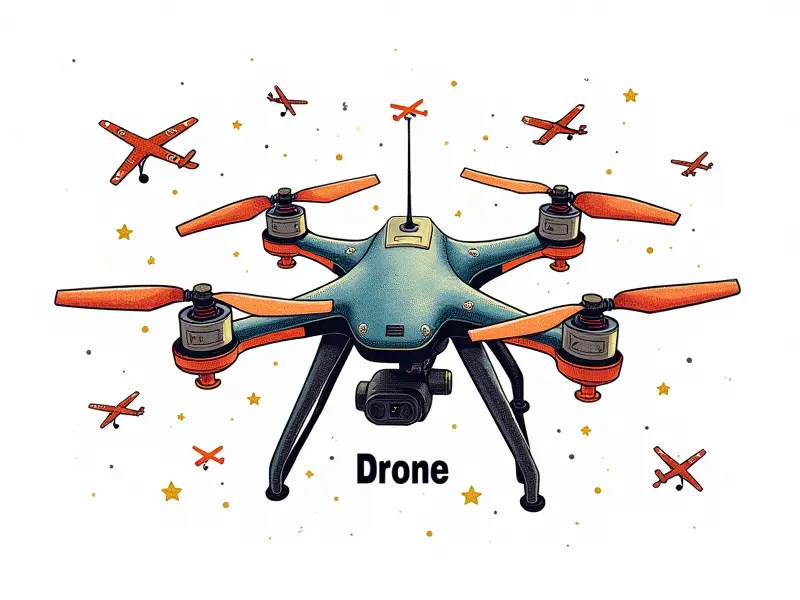What are Li-ion batteries?

Why Li-Ion Batteries Rule RC Models
Lithium-ion (Li-Ion) batteries have become the go-to choice for remote control (RC) enthusiasts due to their superior performance and reliability. These batteries offer a high energy density, which means they can store more power in a smaller package compared to other battery types. This makes them ideal for RC models that require compact yet powerful energy sources.
Li-Ion batteries also provide a consistent voltage output throughout the discharge cycle, ensuring optimal performance during extended use without significant drops in power levels. Additionally, their lightweight nature allows RC vehicles and drones to achieve better speed and maneuverability, enhancing overall user experience.
Understanding Li-Ion Batteries
Lithium-ion batteries are rechargeable batteries that utilize lithium ions as the primary charge carriers. They consist of a cathode (positive electrode), an anode (negative electrode), a separator, and an electrolyte solution. During discharge, lithium ions move from the anode to the cathode through the electrolyte, while electrons flow through the external circuit.
The key components include:
- Cathode: Typically made of cobalt oxide or manganese oxide.
- Anode: Usually composed of graphite.
- Separator: A porous membrane that prevents direct contact between the cathode and anode while allowing ion movement.
- Electrolyte: A lithium salt solution in an organic solvent.
Benefits of Li-Ion Batteries
The advantages of using Li-Ion batteries are numerous, making them a preferred choice for various applications:
- High Energy Density: They can store more energy in less space compared to other battery types.
- Lightweight: Their low weight contributes significantly to improved performance and portability.
- Long Cycle Life: Li-Ion batteries typically last for hundreds of charge cycles, providing excellent value over time.
- No Memory Effect: Unlike NiMH batteries, Li-Ions do not suffer from memory effects, meaning they can be charged at any state without affecting their lifespan or performance.
Types of Li-Ion Batteries
Lithium-ion batteries come in various types, each designed for specific applications:
- Cobalt Lithium (LiCoO2): High energy density but less stable and more expensive.
- Manganese Lithium (LiMn2O4): More stable than cobalt lithium, offering good performance at a lower cost.
- Nickel Manganese Cobalt (NMC): Combines the benefits of nickel and manganese with improved stability and higher energy density.
- Lithium Iron Phosphate (LiFePO4): Known for its safety, long cycle life, and durability, making it ideal for high-drain applications.
Li-Ion vs. NiMH Batteries
When comparing Li-Ion batteries to Nickel-Metal Hydride (NiMH) batteries:
- Energy Density: Li-Ion batteries have a higher energy density, allowing them to store more power in a smaller size.
- Voltage Stability: Li-Ions maintain a consistent voltage throughout discharge cycles, whereas NiMH voltages drop significantly as they discharge.
- Weight: Li-Ion batteries are lighter and more compact than NiMH counterparts.
- Lifetime: While both types have long lifetimes, Li-Ions generally last longer with fewer charge cycles required before degradation.
Care and Maintenance for Li-Ion Batteries
To ensure the longevity of your Li-Ion batteries, follow these maintenance tips:
- Store Properly: Keep them in a cool place at around 40% charge level.
- Avoid Overcharging: Use chargers designed specifically for Li-Ions to prevent overcharging and potential damage.
- Battery Health Monitoring: Regularly check battery health using appropriate tools or software.
Choosing the Right Li-Ion Battery
Selecting the right Li-Ion battery involves considering several factors:
- Capacity (mAh): Higher capacity means longer runtime but also heavier weight.
- Voltage (V): Voltage affects power output and should match your device's requirements.
- Type of Chemistry: Different chemistries offer varying levels of performance, safety, and cost.
Maximize Flight Time with Li-Ion Batteries
To get the most out of your RC drone or aircraft using Li-Ion batteries:
- Select High-Capacity Cells: Opt for cells that offer higher capacity ratings.
- Balanced Charging: Use a charger capable of balancing charge across all cells to ensure uniform performance.
- Monitor Temperature: Keep batteries within recommended temperature ranges during use and storage.
Li-Ion Batteries: Energy for FPV Racing Drones
FPV racing drones benefit greatly from Li-Ion batteries due to their lightweight nature, high energy density, and consistent voltage output. These features enable faster speeds, better maneuverability, and longer flight times compared to other battery types.
How Li-Ion Batteries Drive RC Performance
The performance of remote control models is significantly enhanced by the use of Li-Ion batteries:
- Faster Speeds: Lighter weight and higher energy density allow for quicker acceleration.
- Better Maneuverability: Reduced mass improves handling and responsiveness in tight spaces.
- Extended Run Time: Higher capacity cells ensure longer operational periods without recharging.
Li-Ion vs Other Battery Types
Compared to other battery types, Li-Ions offer several advantages:
- Lithium Polymer (LiPo): Similar in many ways but often more flexible and easier to manufacture.
- Nickel-Cadmium (NiCd): Older technology with lower energy density, higher self-discharge rates, and environmental concerns.
- Lithium Iron Phosphate (LiFePO4): More stable but slightly heavier than other Li-Ion types.
Conclusion
The use of Li-Ion batteries in remote control applications provides significant benefits over traditional battery technologies. Their high energy density, lightweight construction, and consistent voltage output make them ideal for enhancing performance in drones, cars, boats, and other RC models.

